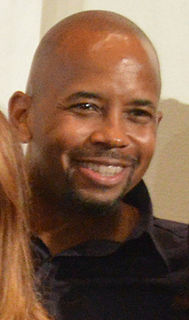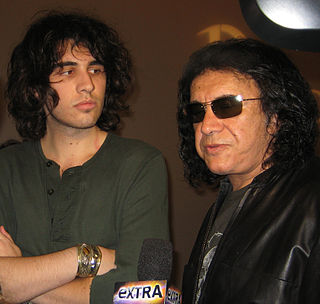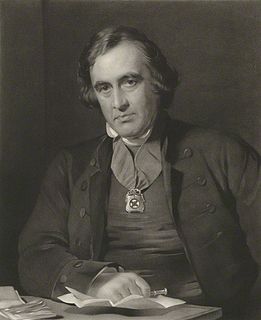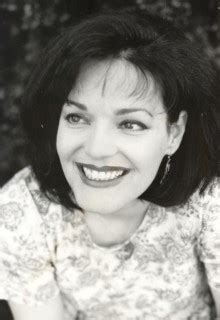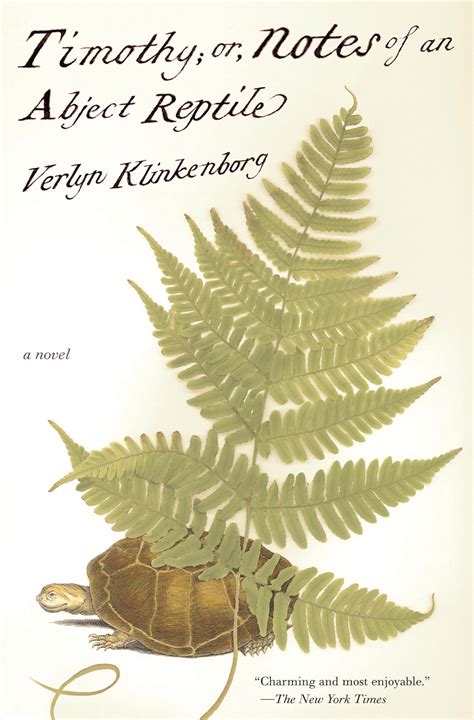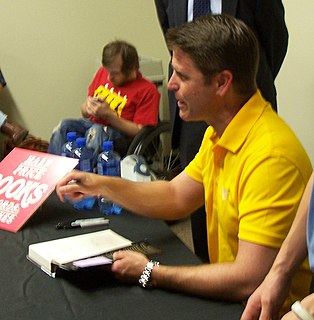A Quote by Michael Boatman
The only thing that makes me put down a book is if the characters are boring, or the situations aren't fraught with the potential for some great change or I don't mind if an author torments his protagonist, but I do expect a decent payoff in the end.
Related Quotes
Anytime you have a female protagonist, it's going to turn into some feminist angle, and it's not a conscious thing on my part. It's only recently that that's been pointed out by the media . . . or pointed out by fans. I also find complicated, flawed characters interesting. What's the opposite? To play one-dimensional, boring failures?
Obviously it's easier when I' m doing the adapting myself. But my feeling is, your potential upside far outweighs the downside. Ultimately, they [moviemakers] can't change your book. Your book remains on the shelf the way you wrote it. If they make a great movie of your book, then you have the equivalent of millions and millions of dollars of advertising for your book. If the movie's not that good, that doesn't mean the book's not good. It doesn't change what you've already written. It has the potential to reach more people.
"The best is oftentimes the enemy of the good;" and without claiming for an instant that title of good for my book, I do not doubt that many a good book has remained unwritten, or, perhaps, being written, has remained unpublished, because there floated before the mind's eye of the author, or possible author, the ideal of a better or a best, which has put him out of all conceit with his good.
To me, feminism in literature deals with the female characters being in some way central to the thematic concerns of the book, or that they are agents of change to some degree. In other words, the lens is focused deeply and intensely on the female characters and doesn't waver, which allows for a glimpse into the rich inner lives of the characters.
I look at the books on my library shelves. They certainly seem dormant. But what if the characters are quietly rearranging themselves? What if Emma Woodhouse doesn't learn from her mistakes? What if Tom Jones descends into a sodden life of poaching and outlawry? What if Eve resists Satan, remembering God's injunction and Adam's loving advice? I imagine all the characters bustling to get back into their places as they feel me taking the book down from the shelf. Hurry, they say, he'll expect to find us exactly where he left us, never mind how much his life has changed in the meantime.
My fear is you have to be careful as a writer to not get caught up in social media and blogging, because it can start to feed into your writing time. When you are writing a book, it's such a long journey where the payoff is way at the end, sometimes years away. The payoff of the blog post is today. You get the reinforcement, comments or "likes" immediately. It's appealing. You have to be patient with the book.
Roth Unbound is filled with intelligent readings and smart judgments. Because of the author's sympathy and sharp mind, it offers real insight into the creative process itself, and into Philip Roth's high calling as a great American artist. The book is, in some ways, a radical rereading of Roth's life and his work. It is impossible, by the end, not to feel a tender admiration for Roth as a novelist and indeed for Claudia Roth Pierpont as an empathetic and brilliant critic.
With a novel, which takes perhaps years to write, the author is not the same man he was at the end of the book as he was at the beginning. It is not only that his characters have developed-he has developed with them, and this nearly always gives a sense of roughness to the work: a novel can seldom have the sense of perfection which you find in Chekhov's story, The Lady with the Dog.
